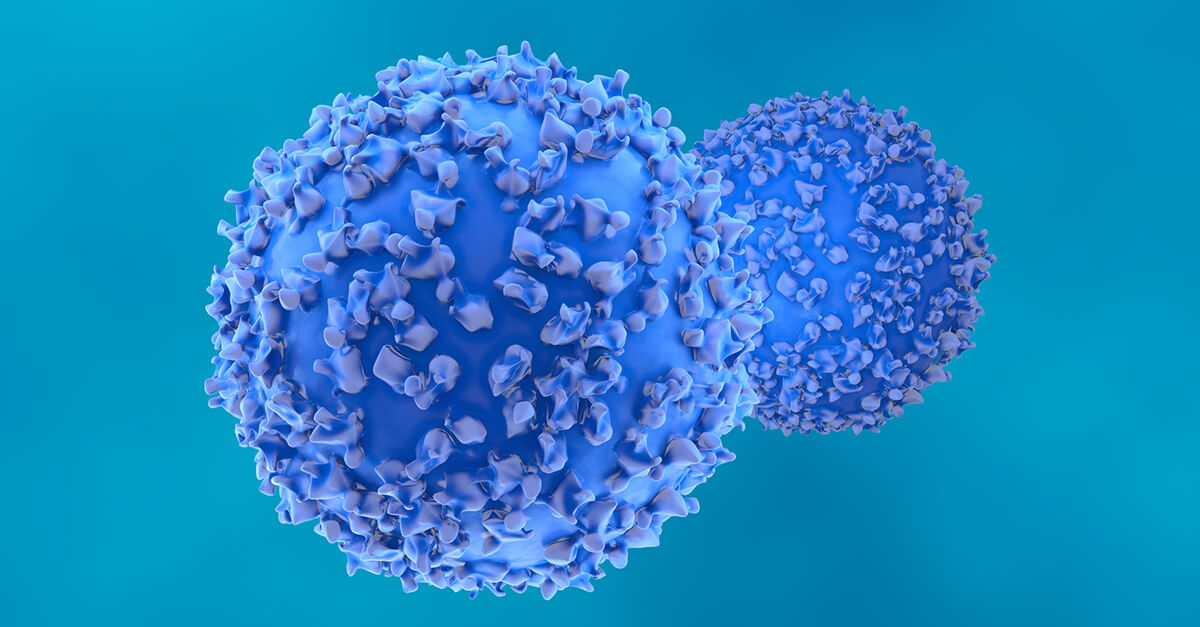Kidney cancer and immunotherapy

Many people who have kidney cancer respond well to the surgical removal of the tumor or the entire diseased kidney (a nephrectomy). But if you’re not a candidate for surgery or the treatment doesn’t cure the disease, your doctor will consider other kidney cancer treatment options like immunotherapy.
From the community: “My husband has done well on Nivo, had over 30 doses with lots of shrinkage of the lung mets, some cant be seen anymore, but it has taken time for the drug to work. Sometimes you get progression at your first one or two scans. He works full time, and has various and variable side effects including fatigue, skin rashes, nerve pain in the wrists and shins but they come and go and change a lot. He found that after a while he has got used to the effects, and says to everyone starting out on Nivo, that it's worth gritting your teeth to keep going.” – Inspire member
How does immunotherapy for kidney cancer work?
Immunotherapy (also called biologic therapy) uses human- or lab-made blood proteins called antibodies to help your immune system identify, target, and destroy cancer cells. The drugs target checkpoint proteins or “checkpoints” that cancer cells turn off in order to evade detection by your immune system.
Immunotherapy involves IV infusions (or sometimes injections) of antibodies. These antibodies join forces with immune system cells (called T cells) to turn the checkpoints back on. Your immune system then recognizes the diseased cells as a threat and initiates a response to destroy them.
From the community: “I too am using Keytruda. I believe I have now had 17 infusions, 21 days apart. The Keytruda is still shrinking my tumor thankfully. My biggest side effect has also been itchy skin. I have had a couple of prednisone scrips that start with 6 pills day one and then 5-4-3-2-1. Sorry I can’t describe that better. I was then started on 10mg daily for a month then down to 5mg daily. Then they moved me to 2.5mg and starting next week I’ll be completely off of it. Apparently to high of dosage can negate what the Keytruda is doing for me. It appears to have helped as my itching has calmed down almost completely. Keep working with your doctors. I think there is hope to at least make it bearable. Best of luck to you. I believe the Keytruda has given me a chance to continue life for awhile.” – Inspire member
When do you need immunotherapy for kidney cancer?
Doctors use immunotherapy to treat kidney cancer that doesn’t respond to surgery, targeted therapy, or other treatments. You may need immunotherapy if you have:
high risk of cancer recurrence after a nephrectomy
intermediate or advanced stages of kidney cancer
metastatic kidney cancer that has spread outside of the kidney
What are the types of immunotherapies for kidney cancer?
The U.S. Food and Drug Administration (FDA) has approved several different immunotherapies for the treatment of kidney cancer. Researchers are also investigating new immunotherapies or combinations of drug treatments in clinical trials.
Immunotherapies for kidney cancer include:
PD-1 inhibitors
PD-L1 inhibitors
CTLA-4 inhibitors
cytokines
PD-1 inhibitors
These drugs block a protein called PD-1 that keeps immune system cells from attacking other cells in your body. By blocking the protein, the drugs allow your immune system to react to the cancer cells.
PD-1 inhibitors include:
Nivolumab, which can shrink kidney cancer tumors by as much as 30%.
Pembrolizumab, which is typically given along with a targeted therapy like axitinib.
From the community:“Has anybody had reaction to avelumab when getting the infusion? This was my second dose. First dose went very smoothly. I felt nothing and had no side-effects. I was getting my second one yesterday when I started to feel heavy in my chest and started to feel congested about 10 mins into the infusion. My bp went up, I was shaking and developed light fever. We called the nurse, they gave me extra benedryl and pepcid then I was okay.” – Inspire member
PD-L1 inhibitors
Avelumab targets a protein called PD-L1. This protein, which is related to PD-1, exists on some tumor cells and immune cells. By blocking the PD-L1 protein, the drug boosts the immune system’s response to cancer cells. People who already have advanced kidney cancer at the time of the initial kidney cancer diagnosis may receive the combination therapy of avelumab and axtinib. These drugs can slow tumor growth or shrink them.
CTLA-4 inhibitors
Ipilimumab blocks the CTLA-4 protein that keeps T cells in check. Doctors sometimes combine ipilimumab with the PD-1 inhibitor nivolumab to treat people with intermediate or advanced kidney cancers who haven’t received other treatments.
Cytokines
Cytokines are lab-made proteins that speed the growth and division of immune system cells to give your immune system a boost. Before the development of other immunotherapies like PD-1 inhibitors, doctors used interleukin-2 (IL-2) or aldesleukin as the first treatment for people with metastatic kidney cancer. But the drugs can cause potentially life-threatening heart problems, so doctors often use other treatments.
Doctors sometimes give an injection (shot) of another type of safer cytokine called interferon alfa-2b along with bevacizumab to shrink cancerous tumors.
What are the side effects of immunotherapy?
In rare instances, immunotherapy causes severe side effects known as immune-related adverse events. These side effects occur when the medications cause the immune system to attack healthy cells, not just diseased ones. You may experience adverse events like kidney failure, nerve damage (neuropathy), or lung inflammation (pneumonitis) during treatment or after treatment stops.
More commonly, immunotherapies cause less severe side effects like:
abdominal pain
blood pressure changes
coughing or shortness of breath
diarrhea or constipation
fatigue
joint pain or muscle pain
loss of appetite, nausea, and weight loss
skin rash, itching, or blisters
How can you manage immunotherapy side effects?
Immunotherapy side effects often improve when you stop treatment. Your doctor may prescribe medications to treat bothersome symptoms. You may want to use the services of a palliative care specialist. These experts provide supportive services to people living with chronic illnesses. They can help you manage disease symptoms and treatment side effects, and provide services that allow you to live better with kidney cancer. If the kidney cancer stops responding to treatments, you may consider end-of-life or hospice care.
Sources
Immune checkpoint inhibitors and their side effects. American Cancer Society. March 2022.
Immunotherapy for kidney cancer. American Cancer Society. November 2021.
Kidney cancer: Types of treatment. American Society of Clinical Oncology. October 2020.
Side effects of immunotherapy. American Society of Clinical Oncology. May 2019.
What is immunotherapy? American Society of Clinical Oncology. May 2022.
Immunotherapy for kidney cancer. Cancer Research Institute. February 2022
How we treat kidney cancer. Dana-Farber Cancer Institute.
Immunotherapy for kidney cancer. Moffitt Cancer Center.
Hammers H. Immunotherapy for kidney cancer: Using the body as a weapon. UT Southwestern Medical Center. December 6, 2017.
Disclaimer
Member comments are lightly edited for length and to remove identifying information but are otherwise reproduced as they appear in the community as part of public posts.
This content is for general informational purposes only and does not necessarily reflect the views and opinions of any organization or individual. The content should not be used as a substitute for professional medical advice, diagnosis, or treatment. Please consult your healthcare provider about any questions you may have regarding a medical condition.




